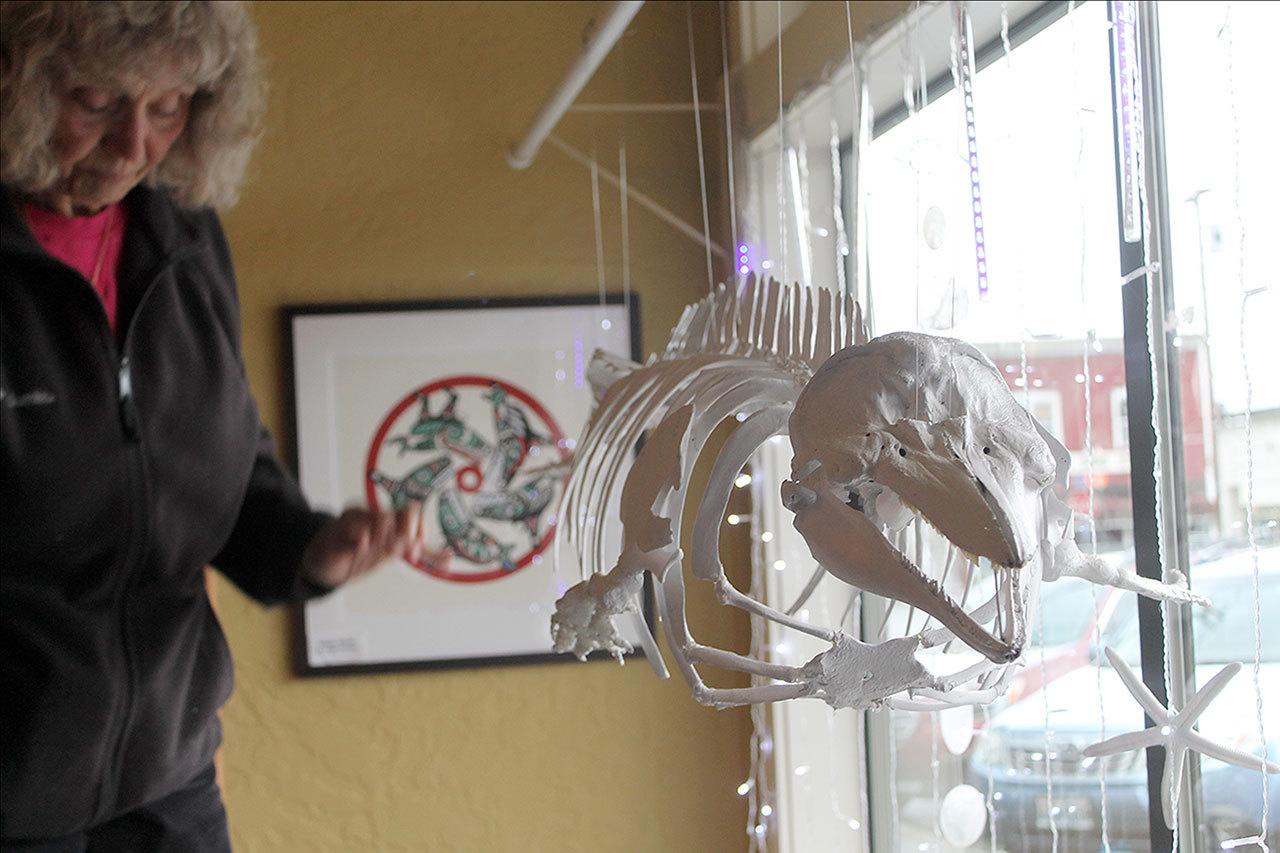A porpoise skeleton exhibit was installed at the Langley Whale Center on Monday.
Dubbed “Maxine,” the skeleton is 66.8 inches long and is hung up in front of a window in the orca-gray whale room where it also visible from the street. The female porpoise washed up on Maxwelton Beach on Nov. 1, 2013 and was found by Janet Stein not far from the boat launch. Necropsy and pathology results showed she died from B-cell lymphoma and suffered trauma to her ribs sometime in her life.
Maxine is the first ever Harbor porpoise to have died of lymphoma, according to Sandy Dubpernell of the Central Puget Sound Marine Mammal Stranding Network. The discovery resulted in it being a topic in scientific journals and discussed at scientific conferences.
The bones were cleaned in the beetle colony at the Burke Museum of Natural History and Culture in Seattle. Volunteers have spent the past few months reassembling Maxine’s skeleton, which remained largely intact. There were around a dozen volunteers who contributed to the effort, which began on Aug. 18, 2016. It took eight sessions in all to complete the work.
Present at Monday’s installation were volunteers Kathy Fritts, Shari Devlin, Debra Paros and Sandy Dubpernell, along with Susan Berta of the Orca Network.
“I’ve got to say, I’m kind of sad it’s over,” said Fritts, a Clinton resident. “We had so much fun. We had never worked together.”
Berta said the Whale Center is excited to have its first skeleton to exhibit.
“It makes us feel better to have something good come out of the death of an animal,” Berta said. “Number one, this has taught us that porpoises have lymphoma, which is something pretty big, then thousands of people will now be able to see her and learn her history and see her broken ribs.”
“It’s great to finally have one and that she came from Maxwelton Beach,” she added.



